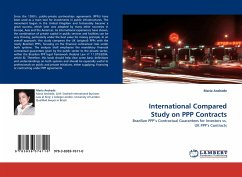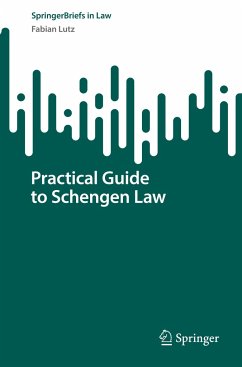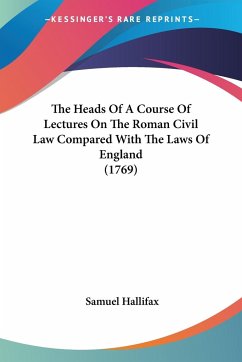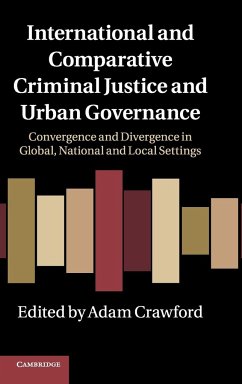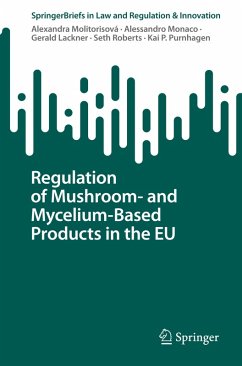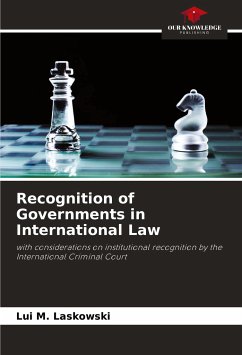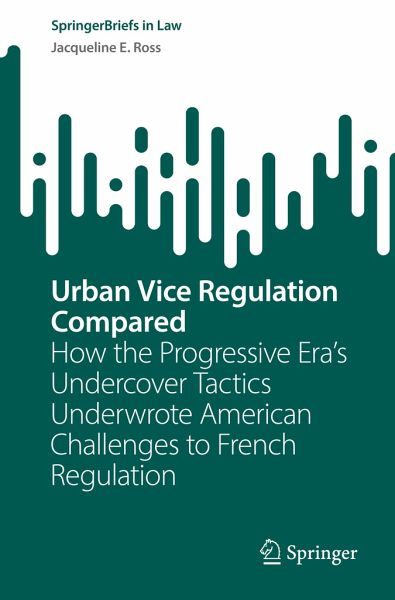
Urban Vice Regulation Compared
How the Progressive Era's Undercover Tactics Underwrote American Challenges to French Regulation

PAYBACK Punkte
16 °P sammeln!
This book uses the early twentieth century surveillance reports of urban vice reformers in New York, Chicago, Lancaster, Pennsylvania, as well as the US vice report for the League of Nations' Special Body on Trafficking in Women and Children (from 1927) and French police memoirs, treatises, and histories of vice enforcement in late nineteenth century and early twentieth century Paris to highlight the way in which American reliance on undercover tactics drove American vice enforcement policy, leading to a clash with French vice enforcement policy before the League of Nations. Both the failure o...
This book uses the early twentieth century surveillance reports of urban vice reformers in New York, Chicago, Lancaster, Pennsylvania, as well as the US vice report for the League of Nations' Special Body on Trafficking in Women and Children (from 1927) and French police memoirs, treatises, and histories of vice enforcement in late nineteenth century and early twentieth century Paris to highlight the way in which American reliance on undercover tactics drove American vice enforcement policy, leading to a clash with French vice enforcement policy before the League of Nations. Both the failure of that early effort to exert international influence on vice enforcement and the American embrace of undercover tactics would set the stage for the later American efforts to promote a global war on drugs.
Before the League of Nations, in particular, the American delegation's notable lack of success in mobilizing European crackdowns on prostitution created a blueprint for how not to project American influence overseas, once American advocates of narcotics interdiction sought to promote a global war on drugs. Yet private reformers' reliance on undercover tactics to investigate prostitution modeled the investigative tactics on which American law enforcement would come to depend, and which it would later seek to export, as a primary weapon in the war on drugs.
Before the League of Nations, in particular, the American delegation's notable lack of success in mobilizing European crackdowns on prostitution created a blueprint for how not to project American influence overseas, once American advocates of narcotics interdiction sought to promote a global war on drugs. Yet private reformers' reliance on undercover tactics to investigate prostitution modeled the investigative tactics on which American law enforcement would come to depend, and which it would later seek to export, as a primary weapon in the war on drugs.





